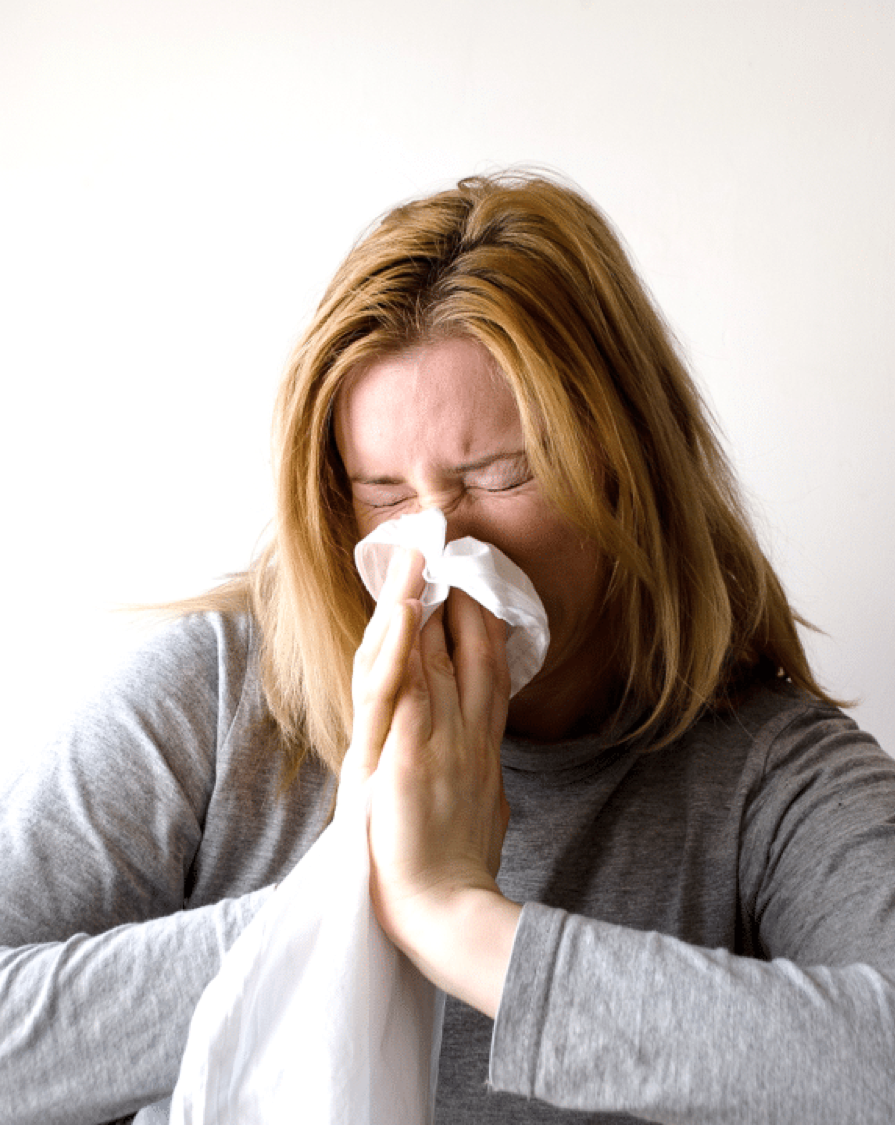Category Archives: sinusitis
Sinusitis: Causes, Symptoms, and Treatment Options
In this guide, we’ll explain the causes, symptoms, and most effective treatment options for sinusitis, helping you find lasting relief. Sinusitis is a common yet often misunderstood condition that affects millions of people each year. It can lead to persistent nasal congestion, headaches, facial pressure, and even difficulty breathing. For residents of New York City, sinusitis can be particularly challenging due to environmental pollutants, allergens, and seasonal weather changes.
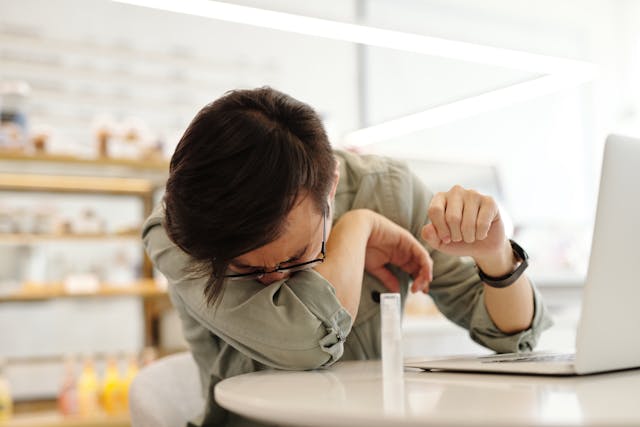
What Is Sinusitis?
Sinusitis, or a sinus infection, occurs when the tissues lining the sinuses become inflamed. This inflammation can cause blockages, leading to mucus buildup, bacterial growth, and uncomfortable symptoms.
Sinusitis can be classified into different types based on duration:
- Acute Sinusitis: Symptoms last less than four weeks, often caused by viral infections like the common cold.
- Chronic Sinusitis: Symptoms persist for more than 12 weeks and are often linked to allergies, nasal polyps, or structural abnormalities.
- Recurrent Sinusitis: Multiple episodes of sinusitis occur throughout the year, often indicating an underlying immune or allergy-related issue.
What Causes Sinusitis?
Several factors can contribute to sinusitis, including:
- Viral Infections: The most common cause, typically following a cold or flu.
- Bacterial Infections: When sinus blockages persist, bacteria can grow, leading to bacterial sinusitis.
- Allergies: Seasonal allergies can cause nasal inflammation, increasing the risk of sinus infections.
- Environmental Irritants: NYC air pollution, cigarette smoke, and strong odors can trigger sinus inflammation.
- Nasal Polyps: Growths in the nasal passages that obstruct proper sinus drainage.
- Deviated Septum: A structural issue that affects airflow and mucus drainage.
Symptoms of Sinusitis
Sinusitis symptoms can vary in severity but commonly include:
- Persistent nasal congestion or stuffiness
- Facial pain or pressure, especially around the forehead, cheeks, and eyes
- Thick nasal discharge (yellow or green in color)
- Postnasal drip (mucus dripping down the throat)
- Headache, particularly in the morning
- Bad breath or loss of smell
- Coughing that worsens at night
- Fatigue due to poor sleep caused by congestion
If symptoms persist for more than 10 days, or if they worsen after initially improving, it may indicate bacterial sinusitis, which could require medical treatment.
Effective Treatment Options for Sinusitis
Dr. Sneeze provides a range of effective treatments for sinusitis, based on the severity and underlying causes of your condition:
1. Medications for Symptom Relief
- Nasal Decongestants: Help reduce nasal swelling and improve drainage.
- Antihistamines: Useful if allergies are a contributing factor.
- Nasal Corticosteroids: Reduce inflammation in the nasal passages.
- Antibiotics: Prescribed only for bacterial sinus infections that don’t resolve on their own.
2. Allergy Treatment for Sinus Relief
If allergies are triggering or worsening your sinusitis, Dr. Sneeze may recommend:
Allergy Testing: Identifies specific allergens contributing to sinus issues.
- Immunotherapy (Allergy Shots): Helps reduce sensitivity to allergens over time.
- Lifestyle Modifications: Recommendations for reducing allergen exposure in your home and workplace.
3. Advanced Sinus Treatments
For chronic or severe cases, additional treatments may be necessary:
- Saline Nasal Irrigation: Rinses away irritants and mucus buildup using a neti pot or saline spray.
- Balloon Sinuplasty: A minimally invasive procedure that opens blocked sinuses for better drainage.
- Surgical Intervention: In rare cases, surgery may be required to remove nasal polyps or correct a deviated septum.
Preventive Measures to Reduce Sinus Infections
Taking steps to prevent sinusitis can reduce the frequency and severity of symptoms. Top allergists in NYC recommend:
- Using a humidifier to keep nasal passages moist during dry winter months.
- Avoiding cigarette smoke and air pollution whenever possible.
- Staying hydrated to help thin mucus and promote proper drainage.
- Practicing good hand hygiene to prevent colds and viral infections.
- Managing allergies effectively to reduce nasal inflammation.
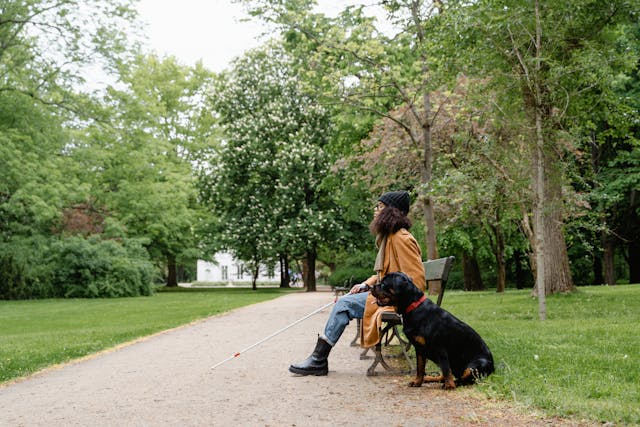
When to See an Allergist for Sinus Issues
If you suffer from frequent sinus infections, persistent nasal congestion, or sinus headaches, seeing an allergist can help identify the underlying causes and provide targeted treatment. A experienced and qualified allergist will offer:
- Comprehensive sinus and allergy testing.
- Personalized treatment plans for lasting relief.
- Minimally invasive procedures to improve sinus drainage.
Sinusitis: Causes, Symptoms, and Treatment Options
: Contact NYC’s Leading Sinus and Allergy Specialist
Don’t let sinusitis disrupt your life. With expert care, you can breathe easier and prevent recurring infections. Dr. Boyan Hadjiev, MD, “Dr. Sneeze,” is dedicated to helping NYC residents find long-term relief from sinus issues. Schedule an appointment today:
Allergy, Asthma and Sinusitis P.C
Boyan Hadjiev, MD
30 East 40th Street
Suite 1200
New York, NY 10016
212-319-5282
Take control of your sinus health with the expertise of NYC’s leading allergist. Book your appointment today and start feeling better!
The Link Between Allergies and Sinusitis: Insights from NYC’s Best Allergist
 In this blog post, we’ll shed some light on the link between allergies and sinusitis. The hustle and bustle of New York City can be exhilarating, but for some residents, it also comes with the challenge of dealing with allergies and sinusitis. If you’ve ever wondered about the connection between these two conditions, you’re not alone.
In this blog post, we’ll shed some light on the link between allergies and sinusitis. The hustle and bustle of New York City can be exhilarating, but for some residents, it also comes with the challenge of dealing with allergies and sinusitis. If you’ve ever wondered about the connection between these two conditions, you’re not alone.
Allergies and Sinusitis: A Common Connection
Allergies and sinusitis are often interrelated and can exacerbate each other’s symptoms. Understanding this connection is crucial for effective diagnosis and treatment. Here’s how they are linked:
1. Allergic Rhinitis (Hay Fever)
Allergic rhinitis, commonly known as hay fever, is an allergic reaction to airborne allergens such as pollen, dust mites, pet dander, and mold spores. When you’re exposed to these allergens, your immune system releases histamines, which can lead to symptoms like:
- Sneezing
- Runny or stuffy nose
- Itchy or watery eyes
- Postnasal drip
- Coughing
The constant irritation of the nasal passages and sinuses due to allergic rhinitis can make you more susceptible to sinusitis.
2. Sinusitis
Sinusitis, also known as a sinus infection, occurs when the lining of the sinuses becomes inflamed and swollen. This can happen due to infections, allergies, or other irritants. Sinusitis symptoms can include:
- Facial pain or pressure
- Headache
- Thick nasal discharge
- Cough
- Fatigue
Allergies can contribute to sinusitis by causing inflammation in the nasal passages, obstructing drainage, and creating an ideal environment for bacterial growth.

Allergies and Sinusitis: Diagnosing and Treating the Connection
1. Allergy Testing
To address the link between allergies and sinusitis, Dr. Sneeze may recommend allergy testing. Identifying specific allergens that trigger your symptoms is crucial for effective management. Allergy testing can include skin prick tests and blood tests to pinpoint your sensitivities.
2. Allergen Avoidance
Once allergens are identified, Dr. Sneeze will provide guidance on allergen avoidance strategies. This may involve recommendations for reducing exposure to common allergens in your home and work environments.
3. Medications
Both allergies and sinusitis can benefit from medications. Allergy medications like antihistamines and nasal corticosteroids can help manage allergy symptoms. For sinusitis, antibiotics or decongestants may be prescribed to alleviate infection-related symptoms.
4. Immunotherapy
For long-term relief, immunotherapy (allergy shots) may be recommended. Immunotherapy gradually desensitizes your immune system to specific allergens, reducing your body’s overreaction to them and lessening the risk of sinusitis.
Link Between Allergies and Sinusitis: Contact NYC’s Best Allergist
If you’re experiencing the frustrating cycle of allergies and sinusitis, seeking expert guidance is essential. Dr. Boyan Hadjiev, MD, “Dr. Sneeze,” is NYC’s best allergist, specializing in the diagnosis and treatment of these conditions. Don’t let allergies and sinusitis disrupt your life in the city. Dr. Hadjiev is dedicated to helping you find relief and improve your quality of life. Schedule an appointment today.
Allergy, Asthma and Sinusitis P.C
Boyan Hadjiev, MD
30 East 40th Street
Suite 1200
New York, NY 10016
212-319-5282
Sinusitis and Allergies: Understanding the Link and Effective Treatments
Sinusitis and allergies are two common conditions that are closely linked. In fact, many people who suffer from allergies also experience chronic sinusitis. In this blog post, we will explore the link between these two conditions and discuss effective treatments that can help you find relief.
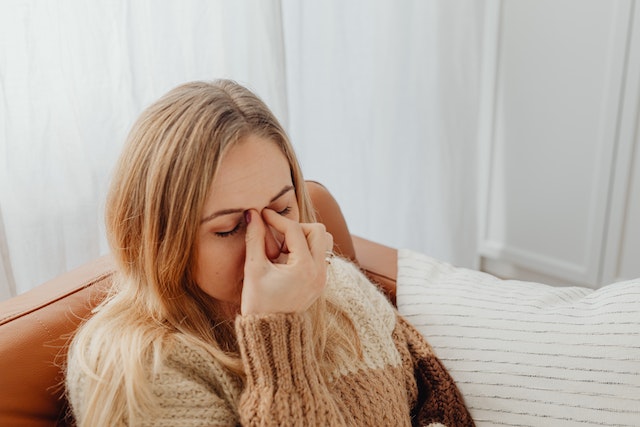
What is Sinusitis?
Sinusitis is an inflammation of the sinus lining that can cause a range of symptoms, including facial pain and pressure, congestion, headaches, and a reduced sense of smell. It can be caused by a variety of factors, including bacterial or viral infections, allergies, or structural abnormalities in the nasal cavity.
What are Allergies?
Allergies occur when the immune system overreacts to a foreign substance, such as pollen or pet dander. Common allergy symptoms include sneezing, itching, runny nose, and watery eyes. For some people, allergies can also trigger sinusitis.
The Link between Sinusitis and Allergies
The sinuses are connected to the nasal passages, and allergies can cause inflammation in the nasal cavity that can lead to sinusitis. When someone with allergies is exposed to an allergen, such as pollen or dust mites, their body releases histamines. Histamines are responsible for causing allergy symptoms, but they can also cause the blood vessels in the sinuses to become inflamed, leading to sinusitis.
Treatments for Sinusitis and Allergies
If you are experiencing symptoms of sinusitis or allergies, it is important to seek treatment from an experienced allergist. They can help you identify the cause of your symptoms and develop an effective treatment plan. Some common treatments for sinusitis and allergies include:
- Antihistamines: These medications block the effects of histamines, reducing allergy symptoms and preventing sinus inflammation.
- Decongestants: Decongestants work by shrinking the blood vessels in the nasal cavity, reducing congestion and pressure in the sinuses.
- Nasal corticosteroids: These medications reduce inflammation in the nasal cavity and sinuses, helping to alleviate symptoms of both allergies and sinusitis.
- Immunotherapy: Immunotherapy involves exposing the body to small amounts of an allergen over time, helping the immune system build up a tolerance and reducing allergy symptoms.
- Surgery: In some cases, surgery may be necessary to correct structural abnormalities in the nasal cavity that are causing chronic sinusitis.
Prevention Tips
 While there is no guaranteed way to prevent sinusitis or allergies, there are steps you can take to reduce your risk of developing these conditions. Some tips include:
While there is no guaranteed way to prevent sinusitis or allergies, there are steps you can take to reduce your risk of developing these conditions. Some tips include:
- Avoiding allergens: Identify the allergens that trigger your symptoms and take steps to avoid them as much as possible.
- Keeping the home clean: Regularly clean your home to remove dust, pet dander, and other allergens that can trigger symptoms.
- Staying hydrated: Drinking plenty of fluids can help keep mucus thin and flowing, reducing the risk of sinusitis.
- Using a humidifier: Adding moisture to the air with a humidifier can help soothe irritated nasal passages and reduce congestion.
- Getting regular checkups: Regular checkups with an allergist can help identify and treat allergy and sinusitis symptoms before they become chronic.
Sinusitis and Allergies: Conclusion
In conclusion, if you are experiencing sinusitis symptoms, it’s important to schedule an appointment with a top NYC allergist like Boyan Hadjiev MD, who can help diagnose and treat the underlying cause of your condition. By taking a comprehensive approach that considers both allergies and other factors that may be contributing to your sinusitis, Dr. Hadjiev can help you find long-term relief and improve your overall quality of life. Don’t suffer through sinusitis symptoms any longer.
Contact Dr. Sneeze at Allergy, Asthma and Sinusitis P.C. to schedule a consultation today.
Allergy, Asthma and Sinusitis P.C
Boyan Hadjiev, MD
30 East 40th Street
Suite 1200
New York, NY 10016
212-319-5282
Chronic Sinusitis
If you’re suffering from a stuffy nose and are finding it difficult to breathe properly, you’re probably suffering from chronic sinusitis. In chronic sinusitis, your sinuses suffer from excessive inflammation and swelling. There are many causes and treatments for chronic sinusitis. If you’re suffering from chronic sinusitis and want to learn about how you can treat it, you should definitely read this article further on. This way, you can also educate and help others around you who might be suffering from chronic sinusitis.
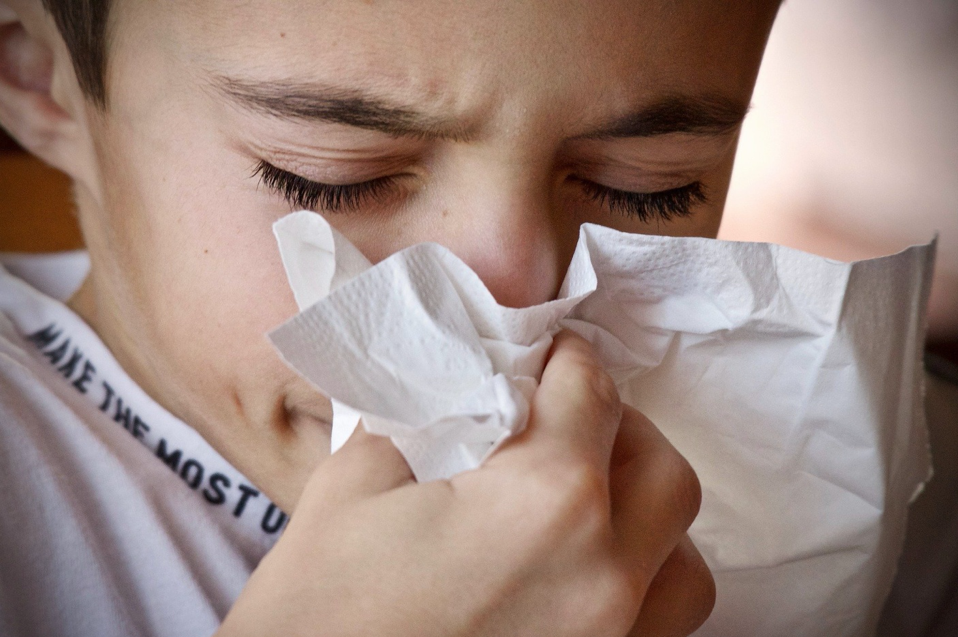
What Causes Chronic Sinusitis
Mentioned below are the reasons that contribute to the build-up of chronic sinusitis:
1. Polypus
Polypus is a tear drop-like growth in the passage of your sinuses that contributes to the inflammation in the nose and nearby areas.
2. Allergic Reactions
If you develop an allergic reaction to an irritant or contaminant, your nose develops a blockage, which leads to inflammation. Hence, allergies could also be a partial reason for chronic sinusitis.
3. Deformed Nasal Septum
If the wall between your nose is crooked, there could be a high chance of blockage in your sinus system, making it harder for you to breathe, which causes further inflammation. This wall is known as the septum.
4. Flu
Infections such as flu and fever most often cause more bacteria to grow in your nose, allowing further inflammation. The inflammation blocks the drainage of mucus, making room for more bacteria.
5. Other Medical Conditions
Other medical conditions can also trigger chronic sinusitis. These conditions include immune system diseases, cystic fibrosis, and HIV.
Symptoms Related to Chronic Sinusitis
There are many different symptoms that you start to develop if you are experiencing chronic sinusitis. These symptoms include:
- Postnasal Drainage – experience huge drainage from the throat
- Excessive inflammation in the nasal tract
- Excessive and heavy discharge from your nose
- No sense of smell or taste due to blockage
- Difficulty in breathing
- Congestion
- Swelling and pain in facial features such as in the nose, eyes, and forehead
- Pain in upper teeth
- Earache
- Dried up and painful throat
- Fatigue
- Bad Breath
As you can see, you may experience many symptoms during chronic sinusitis. However, the most common symptoms are inflammation and breathing issues.
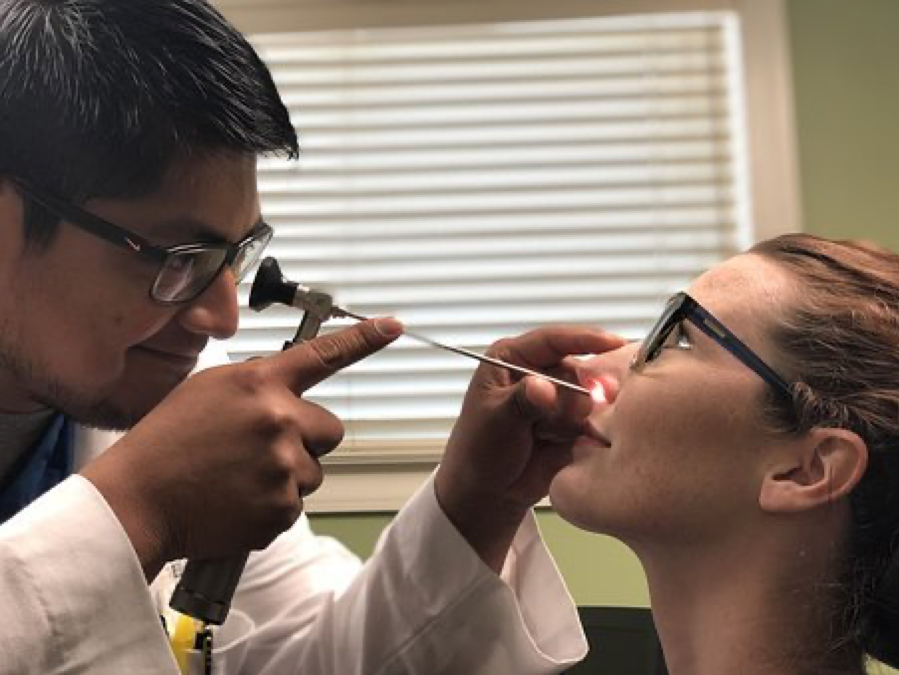
How to Get Chronic Sinusitis Treated
· Nasal Steroids
Nasal steroids come in sprays. These sprays help to subside the inflammation in your nostrils. You can mix the steroid with a saline solution for a better effect, but only if your doctor recommends you to do it. Examples of available nasal sprays are mometasone, budesonide, fluticasone, and triamcinolone.
· Oral or Injected Steroids
You can use these steroids if your sinusitis worsens, and inflammation persists. These are best for nasal polyps but you may experience some side effects, especially if you use it for a longer period of time.
· Aspirin Desensitization
You receive this treatment only if you develop chronic sinusitis due to heavy aspirin intake. During this treatment, you take heavy doses of aspirin in order to increase your tolerance. This procedure takes place under medical supervision.
· Nasal Cleanse
You can clean your nasal passages to reduce and cleanse drainage while relieving any allergies. You can use solutions or nasal sprays to carry out the nasal irrigation.
· Immunotherapy
Opt for immunotherapy if your allergies are contributing to chronic sinusitis, and it keeps worsening. Immunotherapy is commonly known as allergy shots.
· Antibiotics
Your doctor may prescribe you an antibiotic if other treatments are not working. This is especially if you have a bacterial infection.
· Surgery
If your sinus doesn’t heal through medication or other treatments, you may have to go for endoscopic sinus surgery. In this surgery, the doctor removes the tissue or polyp that is blocking your nasal passages.
Conclusion
If you’re suffering from extreme chronic sinusitis and need professional help, you can seek medical assistance from New York’s best allergist, Dr. Boyan Hadjiev. To book an appointment, just visit DrSneeze.com or call us at 212-319-5282.
All about Sinusitis

Sinusitis is also known as rhinosinusitis (RS). It is the inflammation of the lining membrane in the sinuses. Infection, allergies, and air pollution can cause sinusitis. It occurs because of the blockage of airflow in the sinuses due to contaminants like pollen and dust.
It is a common disease globally and sometimes needs to be treated as early as possible. In 2018, 28.9 million adults in the US show symptoms of sinusitis that is 11.6%.
Types of Sinusitis
1. Acute sinusitis
Acute sinusitis is most common in people. In this type of sinusitis, the person suffers from short term inflammation in the membranes. It doesn’t last longer than four weeks. It occurs because of viral infections.
2. Subacute Sinusitis
This takes more time than acute sinusitis to heal. It usually caused by viral and bacterial infections. This can be completely cured with proper treatment. Symptoms last from four to twelve weeks.
3. Chronic Sinusitis
This is the most painful and severe form of sinusitis and needs immediate treatment. It may even require surgery. It can last longer than three months. It occurs because of the swelling in the nose. You will experience difficulty in breathing. Sometimes, doctors suggest surgeries for chronic sinusitis.
Symptoms of Sinusitis
You feel pain in your Sinusus
It is the most common symptom. You have various sinuses near your eyes and nose. Swelling and inflammation in your sinus lead to pain and pressure in the nose. You may also feel pain on your upper jaw, teeth, and forehead.
Excessive Nasal Discharge
You feel the need for nasal discharge very often because the infection in your sinuses results in discharge from your nasal passages. Your mucus will look green or yellow and cloudy during the infection.
You will also feel sore throat and itchiness. It causes you to cough at night and once you wake up. Your voice also changes and sounds hoarse.
Severe Headaches
Sinusitis-induced headaches can be very painful. It occurs because of the swelling and pressure in the sinuses.
Sinus headaches are the worst headaches. You will feel more pain in the morning because mucus collects throughout the night that leads to pain. Your headaches also increase when your environment conges suddenly because of the biometric pressure.
Sinusitis also causes pain in the ear, jaws, cheeks, and around the teeth.
Difficulty Breathing
You may also feel difficulty in breathing because of inflamed sinuses. Sinus blocks the air passage. You may also face a problem in smell or taste. Your voice also changes due to the infection.
Irritation in the Throat
Sinus discharged drains down in the throat, which causes irritation in your throat. This irritation remains for a longer time. You cough worsens and gets more painful at night. You may face difficulty in sleeping. Sleep upright to reduce the cough and itchiness in the throat.
Your Voice May Become Hoarse
Sinusitis leads to a sore throat. A hoarse voice is also the symptom. Your voice becomes stuffy. You also feel difficulty in talking because of a sore throat.
Treatments of Acute and Subacute Sinusitis
Acute sinusitis mostly resolves without the need for treatments. Nonetheless, sinusitis is uncomfortable, which is why people use home remedies and over-the-counter (OTC) medications. They commonly use nasal decongestant spray.
You can also use steroid nasal spray, which is safer for longer periods of use. Use medication that contains decongestants and antihistamines. They will help relieve a sinus infection.
Herbal treatments are also helpful. Some medicines available in the market contain essential oils and sinupret. They can also help alleviate symptoms
Treatments of Chronic Sinusitis
Chronic sinusitis can occur because of allergies. Since prevention is better than cure, avoiding allergens as pollen or dust prevents you from developing an infection in the first place. You can also use chronic sprays but consult your doctor before using it. Antibiotics don’t resolve chronic sinusitis since it is not a bacterial infection.
Surgery of the sinus is necessary if there are polyps in the sinus. Functional endoscopic sinus surgery (FESS) is a common treatment. If you’re suffering from other complications, other surgeries can also resolve issues. Septoplasty is recommended to treat a deviated septum. Surgeries should always be the last option for treating chronic sinusitis.
Conclusion
Sinus is a painful medical condition. You feel pain in the head, nose, ears, and even around the teeth. It is important to diagnose and treat it properly. Acute and subacute sinuses are not as harmful as chronic and often cured without treatment. However, chronic is much more painful and harmful if it is the result of a deviated septum.
NYC Allergist Boyan Hadjiev offers the best sinusitis treatments. We will suggest the best treatment for your type of sinusitis, and will prescribe medication where necessary or advise natural remedies.
Book an allergy telemedicine appointment today!
Boyan Hadjiev, MD
212-319-5282
What Is Sinusitis? Can an Allergist Help?
If you have ever suffered from sinusitis, you probably dread the feeling. That onset of stuffy head, painful sinus cavities, and achy feeling all over. Then comes the fever. Your teeth and eyes start to hurt. Post-nasal drip sets in, and you’re down for the count. Who could imagine that a few small cavities in your head could cause so much discomfort or congestion?
The Problem with Sinuses
Sinuses are hollow spaces surrounding your nose. Healthy sinuses perform a much-needed function of lubricating the nose with mucus. The mucus protects you from pollutants and other irritants.
Sinusitis, sometimes referred to as a sinus infection, occurs when the tissue that lines the sinus cavities becomes inflamed. Swelling can be triggered by something as simple as a cold, an allergen, or a pollutant in the air.
Because sinus cavities are located close to the eyes and teeth, you might also feel pain in those areas during sinusitis.
Sinusitis and Sinus Blockage
When sinus cavities are swollen, mucus doesn’t flow freely. It backs up. That makes the sinus cavities ripe for bacteria, viruses, or fungi to grow. The sinuses react to those germs by producing even more mucus. Next thing you know, you’re in pain and misery. Sinusitis has set in.
Sinusitis Can Be Acute or Chronic
If you have experienced sinusitis, you know it doesn’t go away overnight. Acute sinusitis can linger for two weeks or even longer. Believe it or not, that’s the good news. Chronic sinusitis can last for months.
Sinusitis Is Often Recurring
Once you have recovered from sinusitis, you hope not to have that experience again anytime soon. Unfortunately, it might recur sooner than you’d like. People often suffer from sinusitis throughout the year, regardless of the weather and other health factors.
Our Allergist Can Treat Sinusitis
If you are suffering from sinusitis, or if you are prone to recurring sinus infections, a visit to our allergist, Dr. Hadjiev can help. He can treat your current infection and symptoms, so you can have some reprieve and start getting well.
That’s just the beginning of what Dr. Hadjiev will do to help you. He will also look for underlying causes of your sinusitis. He doesn’t want you to keep having those sinus infections any more than you do. The goal is not just to treat your current sinus infection. It’s also to help you become less susceptible to sinus problems in the future.
If you are not suffering right now, but you are prone to sinus infections, our allergist can help you determine why you regularly have sinusitis. You can get answers and help before the next infection sets in.
When something affects your sinuses, you can’t stop them from reacting, swelling, producing mucus, or becoming infected. But through a medical exam and tests, our allergist will be able to treat the underlying causes and help you minimize the triggers, so your sinuses can work better.
Sinusitis Can Be Caused by Blockages
Through a medical exam, our allergist will look for any structural problems that might contribute to frequent sinus inflammation. Nasal polyps, a deviated septum, or other problems that block the sinuses can cause susceptibility to sinus infections.
Allergens Can Trigger Sinusitis
Allergens and environmental pollutants can also trigger recurring sinusitis. Through allergy testing and looking at your medical history, our allergist can determine what may be causing your sinus inflammation.
Our Allergist Can Help Relieve Your Sinusitis
When you know what is triggering your sinus reactions, you can begin to modify your environment to eliminate or reduce those triggers. Where needed, immunotherapy may be offered along with other treatments.
If you are suffering from sinusitis right now, or if you have frequent problems with sinus infections, don’t suffer any longer. Call Dr. Hadjiev and make an appointment at our convenient Midtown Manhattan office today.
Ways to Prevent Sinusitis
A top New York City allergy doctor, Dr. Hadjiev sees many patients with allergic rhinitis, colds, and nasal polyps. Some of these patients develop sinusitis, which is swelling and inflammation of the tissues that line the sinuses. This causes blockage of the sinus air passages, and they may fill with fluid, which provides a nice environment for the growth of all types of germs, including viruses, bacteria, and fungi.
Dr. Hadjiev, a leading New York City allergy doctor, warns that the signs of acute sinusitis include pain and pressure in the face, a stuffy or sunny nose, cough and congestion, and loss of the sense of smell. Some patients may experience fever, bad breath, pain in the teeth, or fatigue, as a result of sinusitis. Thick yellow or green nasal discharge is a sign of an acute infection of the sinuses.
Prevent Sinusitis
How can you avoid developing sinusitis? It’s important to treat nasal congestion as soon as it occurs, to prevent bacteria from causing a sinus infection. Avoidance of people with upper respiratory infections, like colds or other viral infections, is important. If you must be around people with an upper respiratory infection, wash your hands frequently.
Smoking is strongly associated with sinusitis, so avoid smoking and second hand cigarette, cigar, and pipe smoke. Smoke irritates the sinus and nasal membranes. You can also consider use of a humidifier, to increase the moisture in the air your breath. This will help prevent damage to the delicate lining of the nasal and sinus passages.
If you have allergies, you should see a leading New York City allergy doctor for a consultation to see if you are a candidate for allergy shots, also known as immunotherapy. Because allergies result in stuffy or runny nose, treatment for allergies may be one of the most important things you can do to avoid sinusitis, particularly is you suffer from chronic hay fever, also known as allergic rhinitis. Dr. Hadjiev, one of New York’s leading allergy doctors, can assist you with diagnosis and treatment of your allergic rhinitis, to help you prevent sinusitis.
Other tips for avoidance of sinusitis include the use of nasal saline drops or sprays, to keep your nasal passages moist and to help wash out bacteria and mucus. A hot, damp towel can relieve congestion, when placed on your face for 5 or ten minutes several times a day. Drinking plenty of fluids will also keep your nasal passages moist and healthy.
If you are troubled by allergic rhinitis or frequent episodes of sinusitis, call our office today at 212.319.5282 for your consultation with Dr. Hadjiev, one of New York’s leading allergy specialist.
Serving all of New York City and the Tri State Area including Zip Codes: Top Allergist NYC Midtown, Chelsea and Clinton: 10001, 10011, 10018, 10019, 10020, 10036 | Gramercy Park and Murray Hill: 10010, 10016, 10017, 10022 | Greenwich Village and Soho: 10012, 10013, 10014 | Lower Manhattan: 10004, 10005, 10006, 10007, 10038, 10280 | Lower East Side: 10002, 10003, 10009 | Upper East Side: 10021, 10028, 10044, 10128 | Upper West Side: 10023, 10024, 10025

